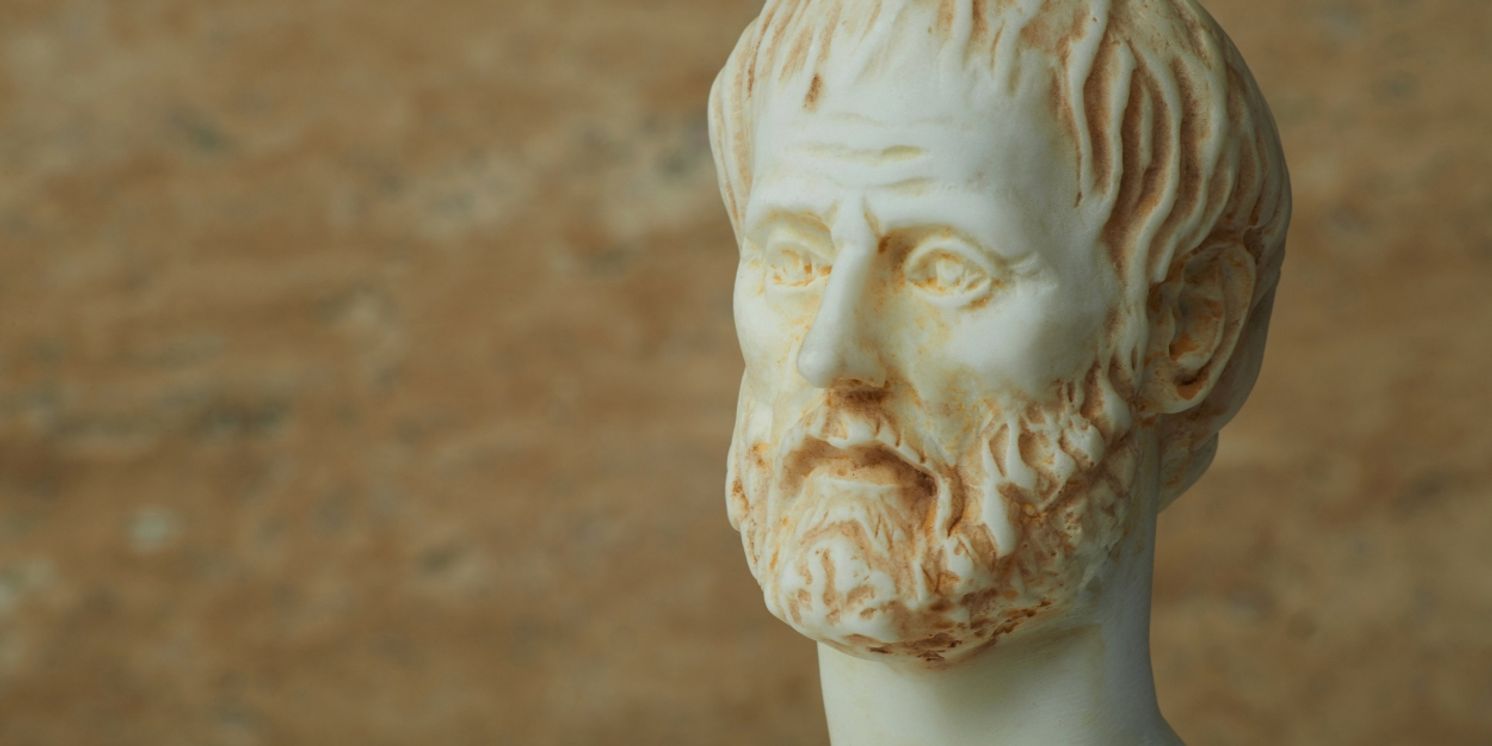Unpacking the 6 Aristotelean Elements of Drama
Aristotle Guide: How did Aristotle break down drama and does his thinking hold up?

If you find yourself trying to break down the key elements of a perfect play, you need look no further than the Greeks! Aristotle's analysis of drama in his work Poetics identifies six key elements that create a comprehensive framework for understanding and evaluating dramatic literature and performance. Before we break them down, some background...
Who was Aristotle?
Aristotle (384-322 BCE) was a towering figure in ancient Greek philosophy and science. While influenced by Plato, Aristotle diverged from his teacher's idealism, developing his own systematic approach to philosophy grounded in empirical observation and logical reasoning.
Aristotle's approach to knowledge, known as Aristotelianism, emphasized the study of the natural world through observation and classification. His enduring influence on Western civilization stems from his rigorous approach to knowledge, his exploration of ethics and politics, and his contributions to fields ranging from biology to metaphysics, cementing his legacy as one of history's most influential thinkers.
What is Aristotle's Poetics?
Aristotle's Poetics is a foundational work of literary theory and criticism that explores the principles and nature of poetry, specifically focusing on drama and tragedy. It is believed to have been written around 335 BCE and remains one of the most influential texts in the history of literature.
Throughout Poetics, Aristotle provides numerous examples from Greek tragedies to illustrate his theories. He analyzes the strengths and weaknesses of various plays and playwrights, offering insights into what makes a successful tragedy and how different elements contribute to its effectiveness.
Poetics has had a profound impact on the development of literary theory and criticism. In modern times, it continues to be studied and debated, serving as a foundational text in understanding the principles of drama, narrative structure, and aesthetics.
Aristotle's Six Elements of Drama:
Plot (Mythos)
Aristotle considers plot to be the most important element of a tragedy. It refers to the arrangement of events or incidents that make up the story. According to Aristotle, a well-constructed plot must have a beginning, middle, and end. The plot should also follow a logical and causal sequence of events, where each action leads inevitably to the next, culminating in a resolution that brings about a sense of catharsis—a purging of emotions—through pity and fear. The plot structure typically includes an exposition (introduction of characters and setting), rising action (development of conflict), climax (turning point), falling action (resolution of the conflict), and denouement (final outcome).
Character (Ethos)
Aristotle emphasizes that characters in a tragedy must be consistent and appropriate to their role within the story. Each character should have qualities that are believable and fitting for their position in society and their interactions with others. Aristotle introduces the concept of "hamartia," often translated as tragic flaw, which is a characteristic trait in the protagonist that leads to their downfall. This flaw often involves a moral weakness or error in judgment that contributes to the tragic outcome of the play. Through the characters' actions and interactions, Aristotle explores fundamental questions about human nature and morality.
Thought (Dianoia)
Thought refers to the themes, ideas, and philosophical issues explored in the play. Aristotle argues that tragedy should not only entertain but also provoke thought and contemplation. The play should address universal themes and present moral dilemmas that resonate with the audience. Through the dialogue and actions of the characters, Aristotle suggests that tragedy offers insights into the complexities of human experience, ethics, and the consequences of human actions. The intellectual depth of the play contributes to its enduring relevance and ability to evoke catharsis in the audience.
Diction (Lexis)
Diction refers to the style of language used in the play, including the choice of words, metaphors, and other literary devices. Aristotle emphasizes the importance of poetic language that is elevated and appropriate to the characters and the dramatic situation. The dialogue should be clear, rhythmic, and expressive, heightening the emotional and thematic impact of the play. The language used by the characters reflects their social status, personality traits, and emotional states, contributing to the overall realism and effectiveness of the tragedy.
Melody (Melos)
In ancient Greek drama, melody referred to the musical elements of the choral odes performed by the chorus. These odes were sung or chanted and provided commentary on the events of the play. The choral odes served as a reflection on the actions and themes of the tragedy, enhancing the emotional and aesthetic experience for the audience. The musical elements of the tragedy, including the rhythm and cadence of the language, contributed to the overall atmosphere and dramatic tension of the performance.
Spectacle (Opsis)
Spectacle encompasses the visual aspects of the production, including costumes, scenery, and special effects. While Aristotle acknowledges the importance of spectacle in engaging the audience and enhancing the dramatic experience, he argues that it should not overshadow the other elements of the play, particularly plot and character. Spectacle should be used judiciously to support and enhance the themes and emotions of the tragedy. Aristotle suggests that the most effective tragedies rely on the power of language, character development, and thematic depth to create a profound and memorable theatrical experience.
Videos

